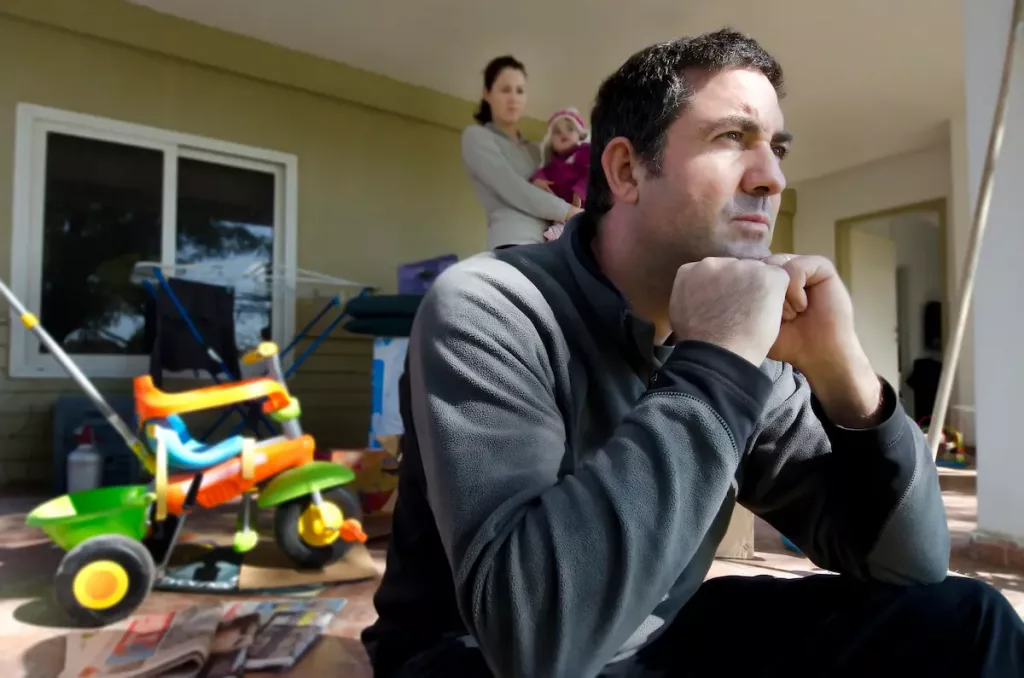Gentle parenting doesn’t work in its totality because it demands absolute perfection from the parent, denying their own need to be a functional human being. It can also come at the cost of other children in the family that might be behaving in a quieter and less outwardly emotional manner.
The term “gentle parenting” hardly sounds controversial. It’s well established that verbally berating or beating your kids is abusive. Thus, to casual observers, critics of gentle parenting look like grumpy curmudgeons. After all, gentle parenting’s primary goals are to promote understanding, empathy, respect, and boundaries. Most criticisms leveled at gentle parenting does not object to those goals.
Gentle parenting isn’t bad in and of itself. The parenting practice is based on the concept that children are people with their own needs. Rather than threatening kids to conform to adult expectations through punishment and bribes, parents guide them through connection, communication, and consistency. These are excellent concepts. Where it breaks down is when it becomes a dogma rather than a practice.

Related Reading: Attachment Parenting Vs. Gentle Parenting
4 Reasons Gentle Parenting Doesn’t Work
Gentle parenting does work as a foundational parenting ethos. Where it breaks down is when it becomes a dogma, is manipulated, or crucial aspects of the practice are forgotten or misinterpreted. However, any parental practice can fall prey to dogma or be misinterpreted. Nonetheless, the following are common pitfalls of gentle parenting.
1. Gentle Parenting Neglects the Parent
A common caution to new parents is to remember to look after yourself. This is compared to airlines telling passengers to put on their own emergency oxygen masks first, before assisting another person.
Gentle parenting doesn’t explicitly insist parents don’t look after their own needs. However, social media has led to dogmatic authorities that preach this damaging concept. Thus, parents have been hounded for admitting that they’ve left the room while their child throws a tantrum.
This shaming overlooks the crucial tenet of gentle parenting, where the parent must remain calm. If a parent has the wherewithal to realize they are not coping well, it is better to be adult enough to remove themselves from the situation rather than stay and react in rage.
Is a parent leaving a child during a tantrum perfect parenting? No. But as Dr. Kristyn Sommer points out, sometimes parents need to choose “good enough” parenting. Mistakes happen, and parents are not perfect. But a parent should take a time-out and regroup than ignore their own needs and self-destruct or burden themselves with unrealistic pressure and guilt.

2. Gentle Parenting Parents Forget the Boundaries
Gentle parenting doesn’t promote a punishment/reward framework. Instead, it encourages redirection. But one of its key tenets is boundaries. These boundaries are for the child and the rest of the family.
For example, in gentle parenting, the child is encouraged to set their own boundaries in regard to their own body. So, if they don’t want a hug or don’t want somebody to hug them, they are given the space to say “no,” and have that “no” be respected.
However, there is the second part of this practice which requires parents to set boundaries, and this part is sometimes overlooked as it is confused with punishment. But gentle parenting is supposed to be firm about boundaries but in a gentle way. So yes, the child might be restless and unable to sit still, but allowing the child to break boundaries and run around a restaurant amok is not okay.
Proper gentle parenting requires the parent to remind the kid of the boundaries. In this example, that running around in a restaurant makes others feel uncomfortable and unhappy and it is not appropriate. However, it then requires the parent to provide space for the child’s needs, such as taking them outside to play hopscotch on the sidewalk for a few minutes.
Understandably, parents get tired, which is the reason for the breakdown in the gentle parenting practice and children running wild. But it is also why many perceive gentle parenting as “not working”. The pressure in this parenting practice is all on the parents, and parents cannot be perfect. It is impossible.
Related Reading: Authoritative Vs. Authoritarian Parenting [MAIN DIFFERENCES]

3. Gentle Parenting Forgets Consistency
Consistency is a crucial element of gentle parenting and most child-rearing practices. However, providing consistency isn’t easy and parents are human. Thus, the lack of consistency can cause problems within the gentle parenting framework and parenting in general.
The problem with gentle parenting dogma is that it overlooks a society that has isolated the primary parent, who is utterly exhausted. Instead, it places the breakdown firmly on the parent whose own needs are being neglected in this modern and isolating parenting model.
Consistency is important. However, parents would be better equipped to provide consistency if they had restorative breaks and proper societal support.
4. Gentle Parenting Can Take Attention Away from Other Children
Gentle parenting is, as a concept, a positive parenting practice. However, like any system or ideology, there is room for manipulation and error. The gentle parenting setup works best when raising a single child. It becomes much more challenging to execute properly with additional children. To be fair, this is true of any parenting practice.
Gentle parenting focuses on meeting a child’s needs. However, a child who acts “needy” can take the attention away from a quieter child who is less outwardly demanding. So, the child throwing, hitting, and having tantrums gains the bulk of the parental attention. Meanwhile, the child being hit and having items thrown at them is in danger of being overlooked.
However, this issue is not confined to gentle parenting. Even schools struggle to see to the needs of all students, especially the less dominant ones. Studies have mostly looked into how boys dominate a classroom, thus gaining the bulk of the teacher’s attention. However, introverts as a whole often have their needs neglected, including in the classroom.
Thus, critics of gentle parenting are not wrong in that it can be manipulated to take attention away from other children in a family. However, this issue is not isolated to gentle parenting but to raising children in general.

Gentle Parenting: A Good Idea Turned into Dogma?
Gentle parenting as a concept has many positive ideas that aid in developing a child. It is a parenting practice that eschews quick fixes. It’s a “long game” method of raising children that, admittedly, can be challenging in the moment. But overall, it is meeting a child where they are, while developing empathy and respect. Thus, it is about raising a decent human being.
This parenting practice isn’t easy. It takes a lot more time than the old-fashioned method of; “Because I say so”. Instead, it requires the parent to talk to their children, hear their feelings, validate them, and then try to redirect or encourage a more favorable choice.
Practicing gentle parenting demands the parent have the self-discipline to remain calm and consistent, which is inarguably an ideal parenting goal. No parenting ideology or practice works well when the parent loses their temper.
But where gentle parenting goes wrong is when it becomes a dogma that forgets the humanness of parents while putting full blame on the parents for any missteps/deviations from the ideal. This can lead to parental burnout or, worse, a breakdown, ultimately creating a much more challenging set of circumstances for all involved.
Those with a dogmatic stance on gentle parenting will also insist that every tantrum is the failure of the parents, usually the mother. However, this overlooks the other influences in a child’s life and the child’s own personality and decision-making. It also mistakes every action as a lack of parents meeting a child’s needs without considering the entirety of a personality, such as curiosity.

FAQ
Does gentle parenting use time outs?
No, the gentle parenting style instead opts for “time-ins”, which advocates for sitting with your child, instead of leaving them alone, to help them with self-regulation while also reinforcing the limits and boundaries.
How do you discipline when gentle parenting?
Gentle parenting does not use punishment or rewards to encourage a child’s behaviour. Instead, it advocates treating the child more akin to an adult, or as an “equal” member of the family that deserves similar levels of respect and autonomy, instead of someone who can be controlled.
Is gentle parenting and Montessori the same?
While Montessori and gentle parenting share some similar approaches, such as encouraging children to take responsibility for themselves and their choices, gentle parenting does involve more parental interventions, such as explaining why certain actions or behaviours are inappropriate.
Is gentle parenting scientifically proven?
Since gentle parenting is such a newly named approach, there is only a small amount of academic research providing evidence. However, research does show that positive bonding between children and their parents is fundamental to healthy development, and this is a big focus in gentle parenting.
Conclusion
The criticism leveled at gentle parenting has more to do with the dogma than the practice. Also, those who claim gentle parenting doesn’t work often cite issues that impact many styles of raising and teaching children.
Gentle parenting is not perfect. But instead of dismissing it, it might be wiser to embrace Dr. Kristyn Sommer’s advice to temper the guilt, try your best, and accept “good enough”.

